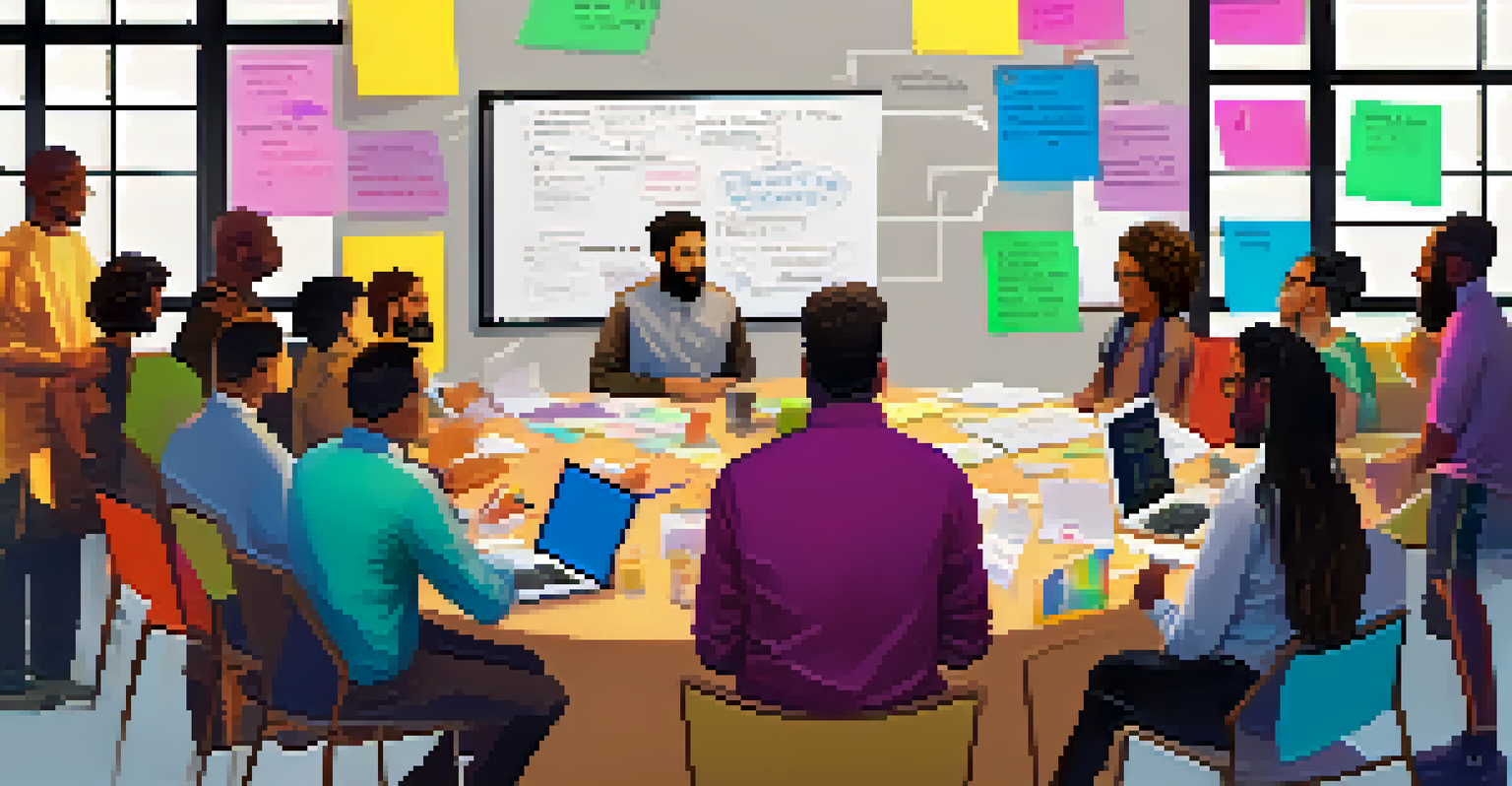Getting Started with Open Source Software Contributions

Understanding Open Source Software and Its Benefits
Open source software (OSS) refers to software with source code that anyone can inspect, modify, and enhance. This openness fosters innovation and community collaboration. By contributing to OSS, you can improve your coding skills, gain experience, and even build a professional network.
Open source is a development methodology, not a technology.
One of the significant benefits of contributing to OSS is the opportunity to work on real-world projects. This experience can be invaluable when building your resume or portfolio. Furthermore, contributing allows you to learn from others, as the community is often eager to provide feedback and guidance.
Additionally, contributing to OSS can instill a sense of purpose. Many projects aim to solve specific problems or improve accessibility, and being part of such initiatives can be incredibly rewarding. It’s not just about coding; it’s about making a difference.
Finding the Right Open Source Project to Contribute To
Choosing the right project is crucial for a positive experience. Start by identifying your interests and skills. If you're passionate about web development, look for projects in that domain. Websites like GitHub, GitLab, and SourceForge can help you discover projects aligned with your interests.

Another effective approach is to explore beginner-friendly repositories labeled with tags like 'good first issue' or 'help wanted.' These tags indicate that the project maintainers are looking for contributions from newcomers, providing a welcoming environment to start your journey.
Open Source Benefits Your Skills
Contributing to open source software enhances your coding skills, provides real-world experience, and helps build a professional network.
Don’t hesitate to reach out to project maintainers or current contributors. Asking questions can clarify the project's goals and how you can contribute. This initial communication can also help you gauge the community's friendliness and supportiveness.
Setting Up Your Development Environment
Before diving in, you'll need to set up your development environment. This process typically involves installing software like Git, a version control system that tracks changes in your code. Familiarizing yourself with Git is essential, as it allows you to collaborate effectively with others.
The best way to predict the future is to invent it.
Next, you’ll want to clone the repository of the project you’ve chosen. Cloning creates a local copy of the project on your computer, enabling you to make changes without affecting the original project. This way, you can experiment and learn in a safe space.
Lastly, check the project’s documentation for any specific setup instructions. Many open source projects provide a README file that outlines the dependencies and configuration steps. Following these guidelines ensures you’re working with the project as intended, making your contributions smoother.
Understanding the Project's Contribution Guidelines
Every open source project has its own set of contribution guidelines that outline how to contribute effectively. These guidelines may specify coding standards, branch naming conventions, and how to submit your changes. Familiarizing yourself with these rules is crucial to ensure your contributions are accepted.
Reading through the project's documentation can also provide insights into the project's workflow, such as how they manage issues and pull requests. Understanding the process helps you align your contributions with the project's needs and maintainers' expectations.
Choose the Right Project Wisely
Selecting a project aligned with your interests and skills is crucial for a positive contribution experience.
Don’t skip this step; following the guidelines not only shows respect for the project but also increases the likelihood that your contributions will be merged. It’s a vital aspect of collaborating in the open source community.
Making Your First Contribution: A Step-by-Step Guide
Now that you’re set up and understand the guidelines, it’s time to make your first contribution! Start small by choosing a simple issue, such as fixing a typo or improving documentation. Small contributions are a fantastic way to get your feet wet and build confidence.
After you’ve made your changes, commit them using Git. A good commit message clearly explains what changes you made and why. This practice not only helps you articulate your work but also provides context for the maintainers reviewing your contribution.
Finally, submit a pull request (PR) to the project. A pull request is a request to merge your changes into the main repository. Be prepared for feedback from maintainers; they may suggest changes or improvements. Embrace this feedback as part of the learning process!
Engaging with the Community and Networking
Once you begin contributing, take the time to engage with the community. Join project forums, chat rooms, or social media groups where contributors gather. Building relationships within the community can make your experience more enjoyable and enriching.
Participating in discussions helps you stay updated on project developments and future contributions. It also provides opportunities to ask questions and seek guidance from experienced contributors who can help you improve your skills.
Engage and Grow in the Community
Networking with the open source community can lead to valuable opportunities and foster continuous learning.
Networking through open source can lead to unexpected opportunities, such as job offers or collaborations on exciting projects. The connections you make can be just as valuable as the coding skills you develop.
Continuing Your Journey: Learning and Growing
Your journey in open source doesn’t have to stop after your first contribution. Continue seeking out new projects and challenges that align with your interests. As you gain experience, consider tackling more complex issues or even leading your projects.
Use your contributions as learning opportunities. Reflect on what you’ve accomplished and identify areas where you can improve. The open source community is vast, and there’s always something new to learn, whether it’s a programming language, framework, or best practices.

Lastly, consider mentoring others. Sharing your knowledge with newcomers not only reinforces your skills but also strengthens the community. By helping others navigate their open source journey, you contribute to a culture of support and collaboration.